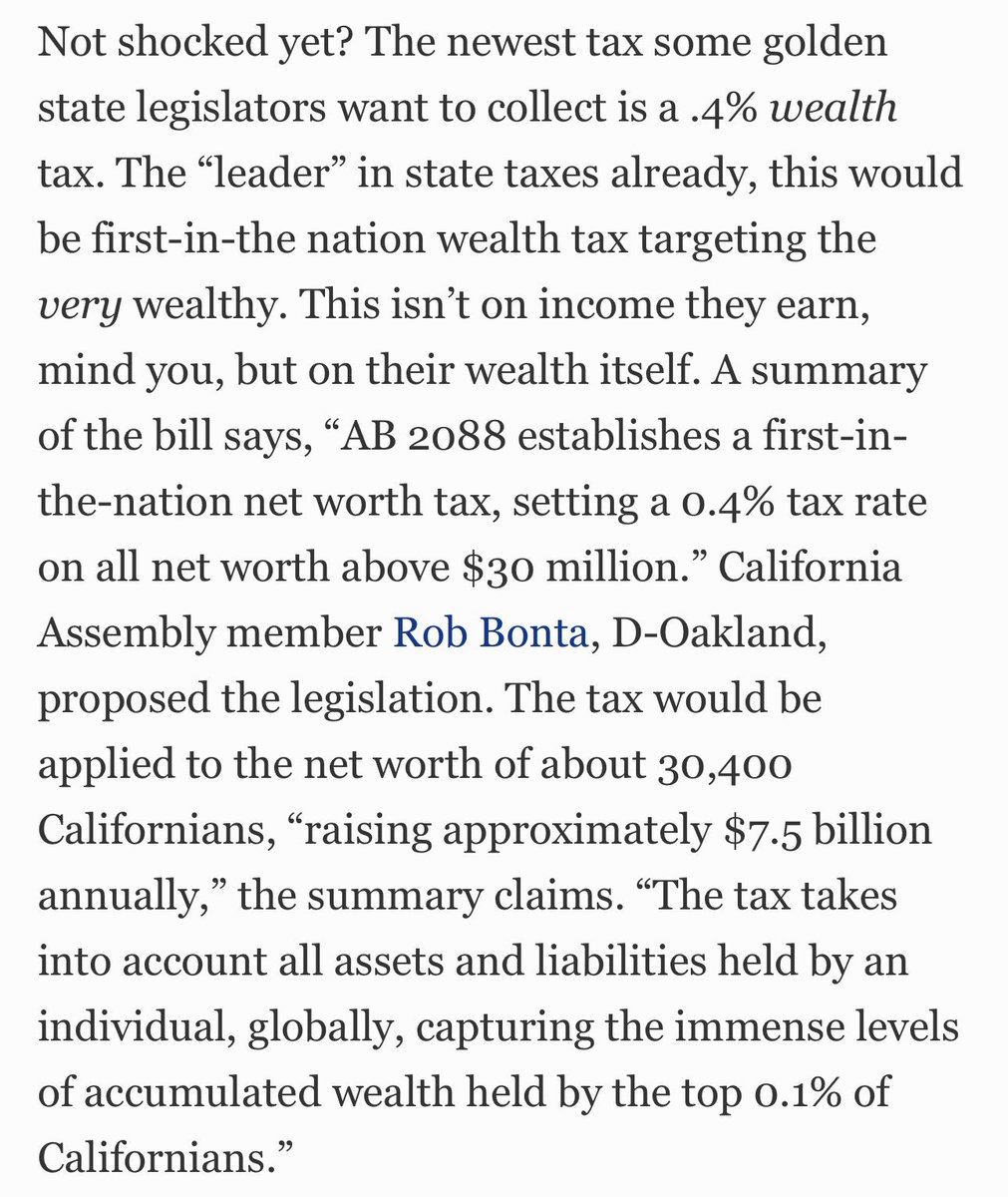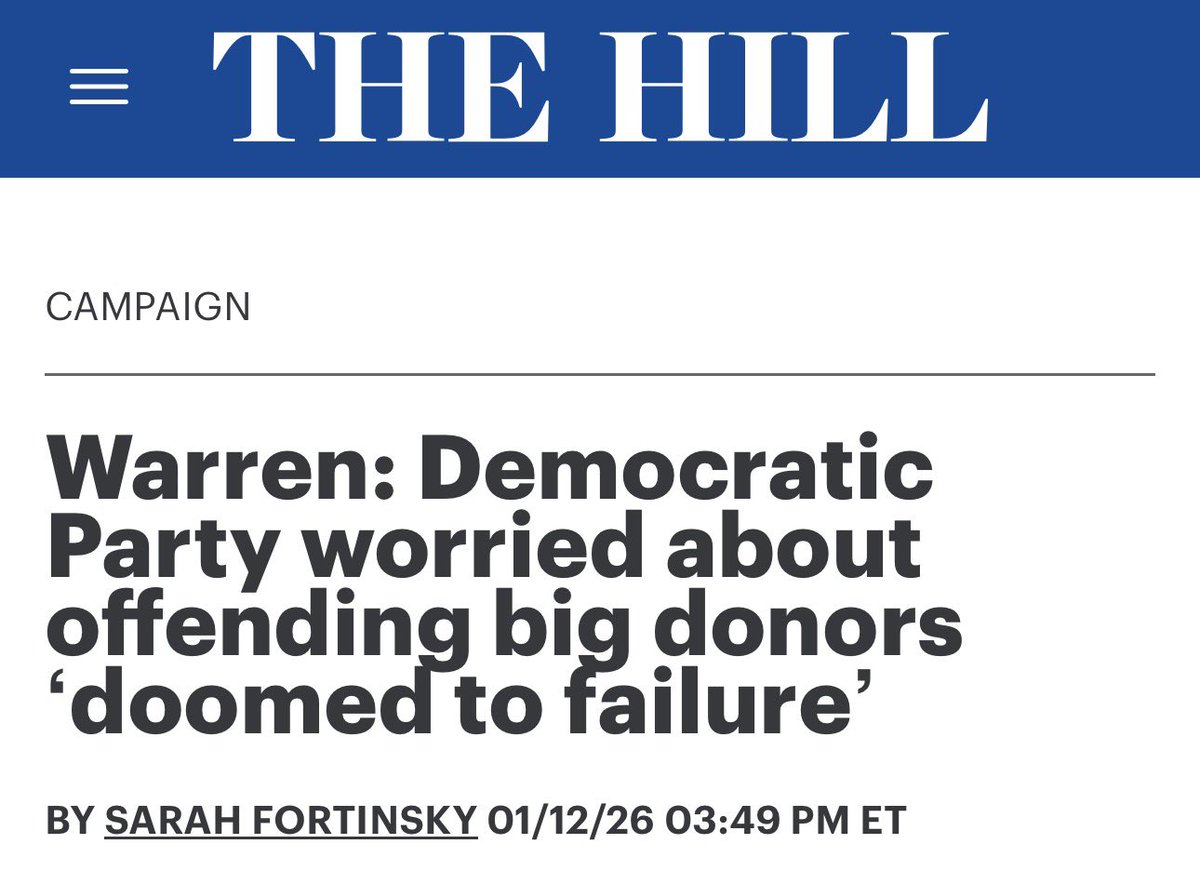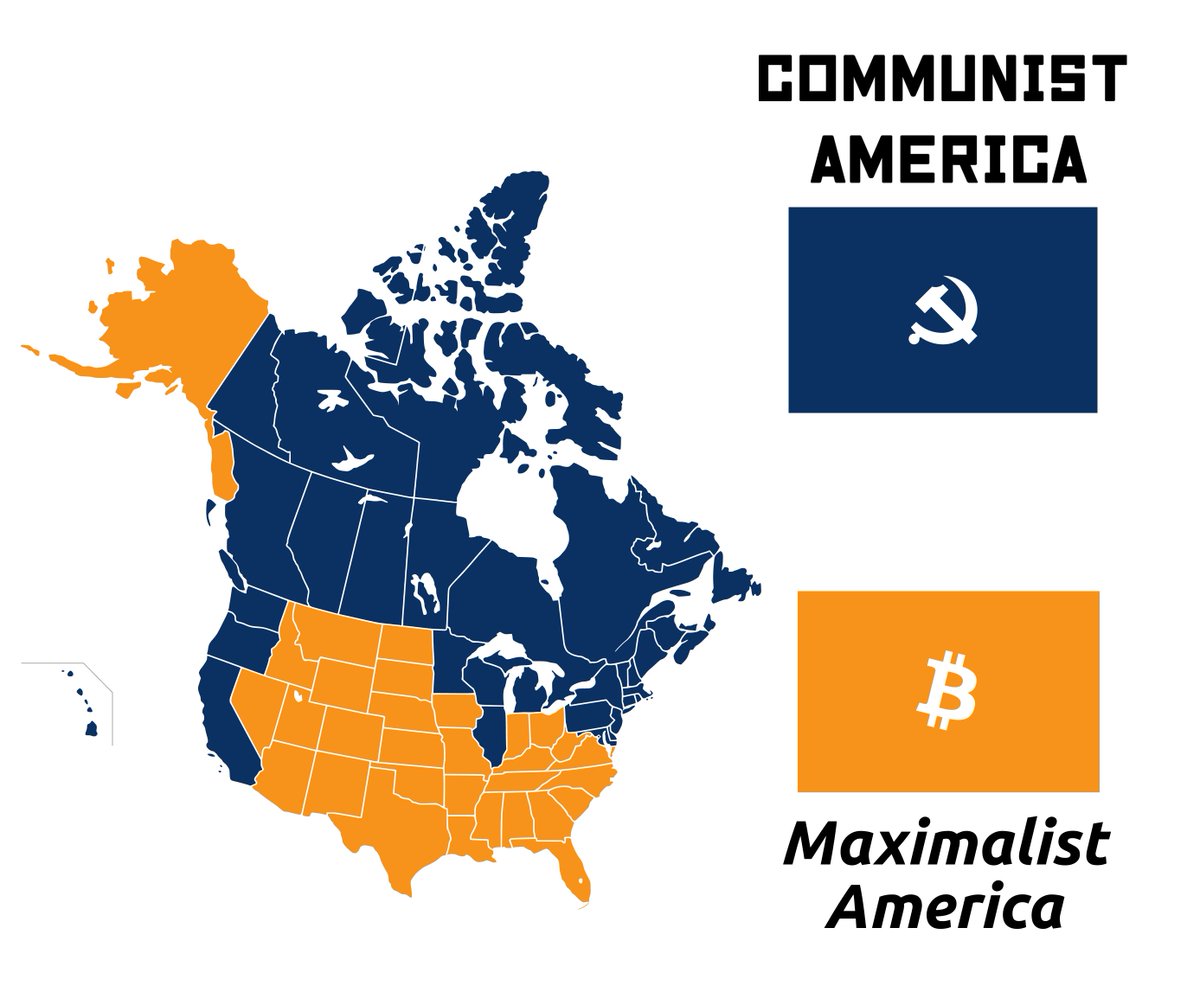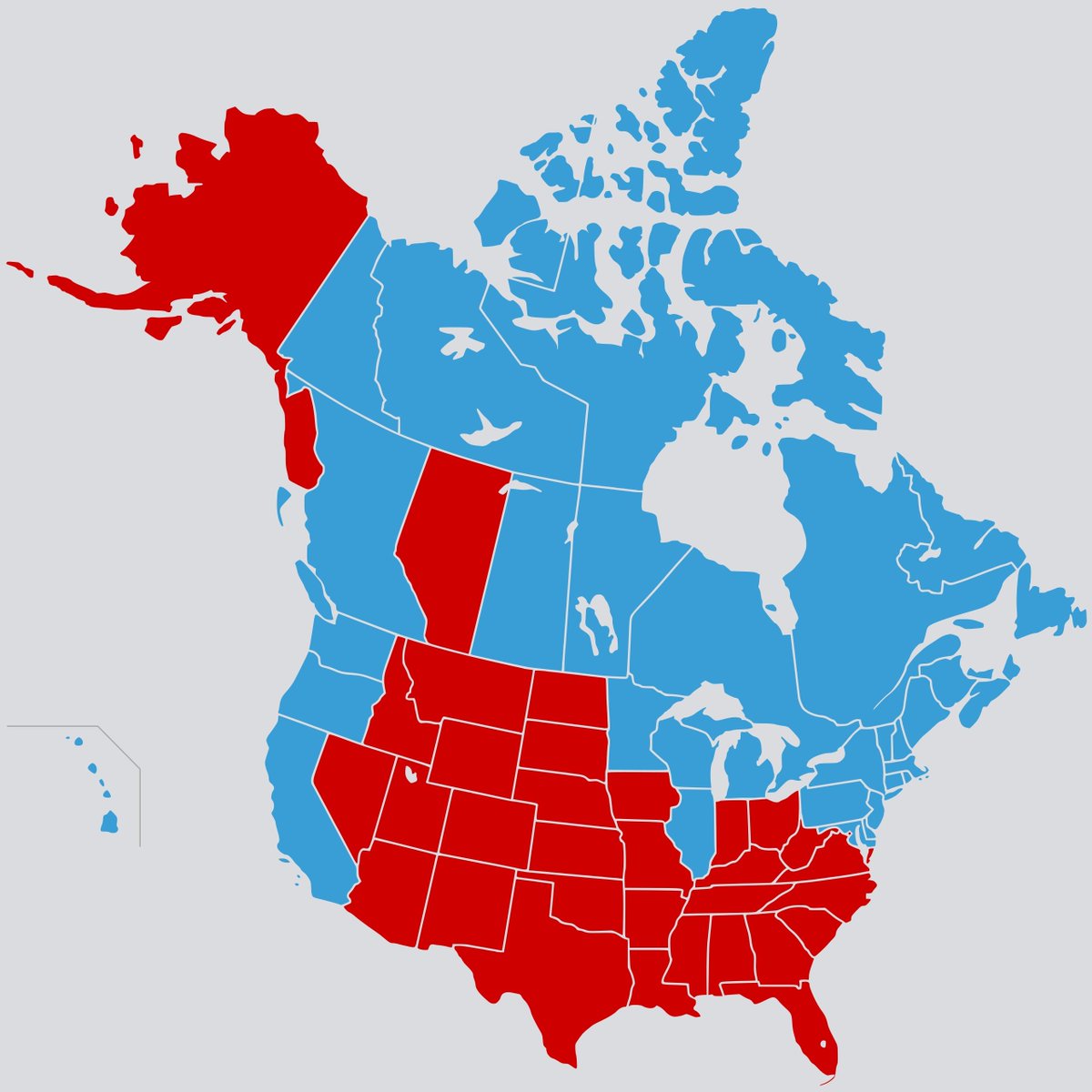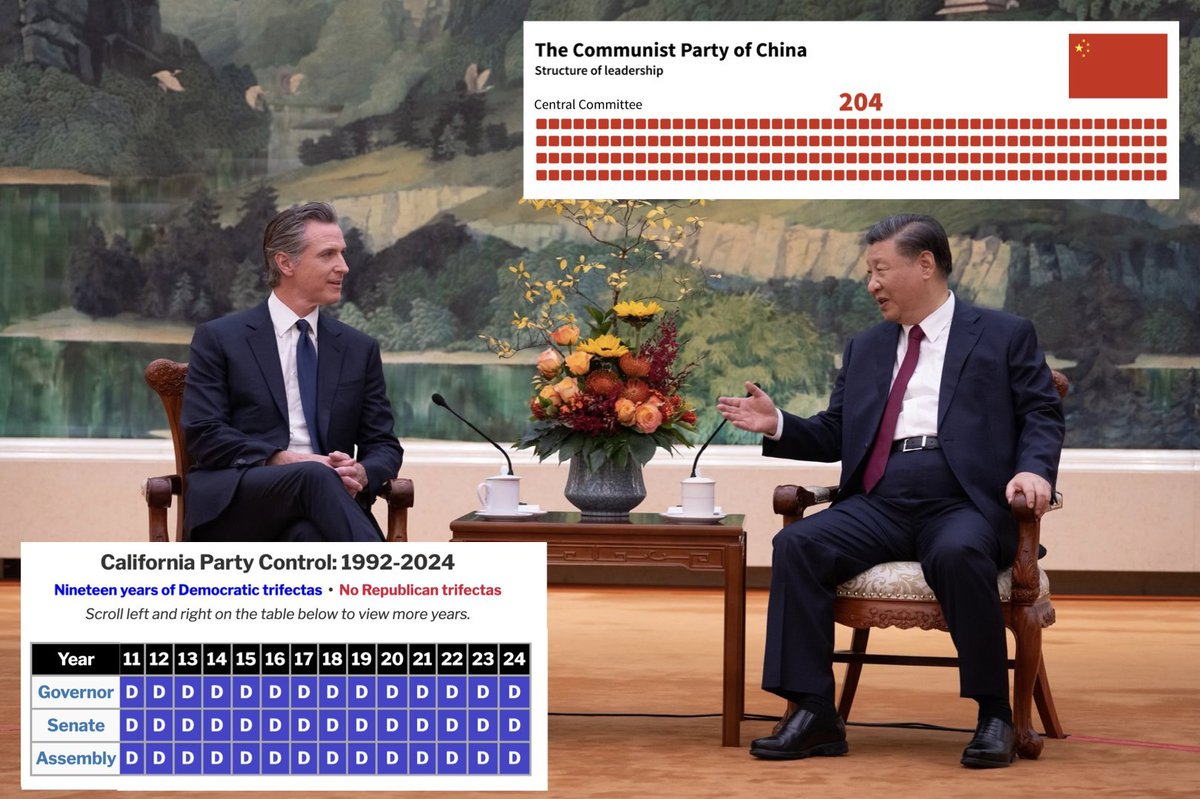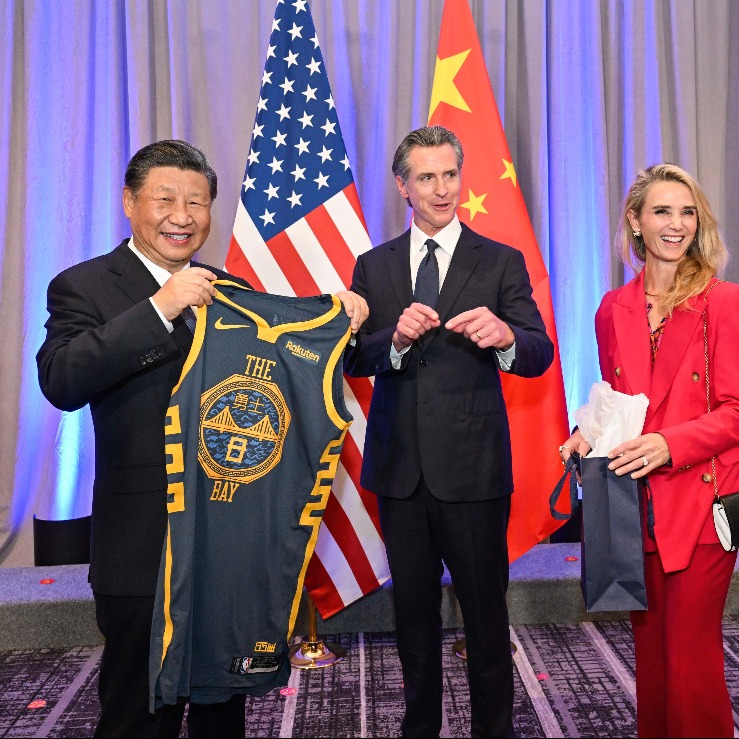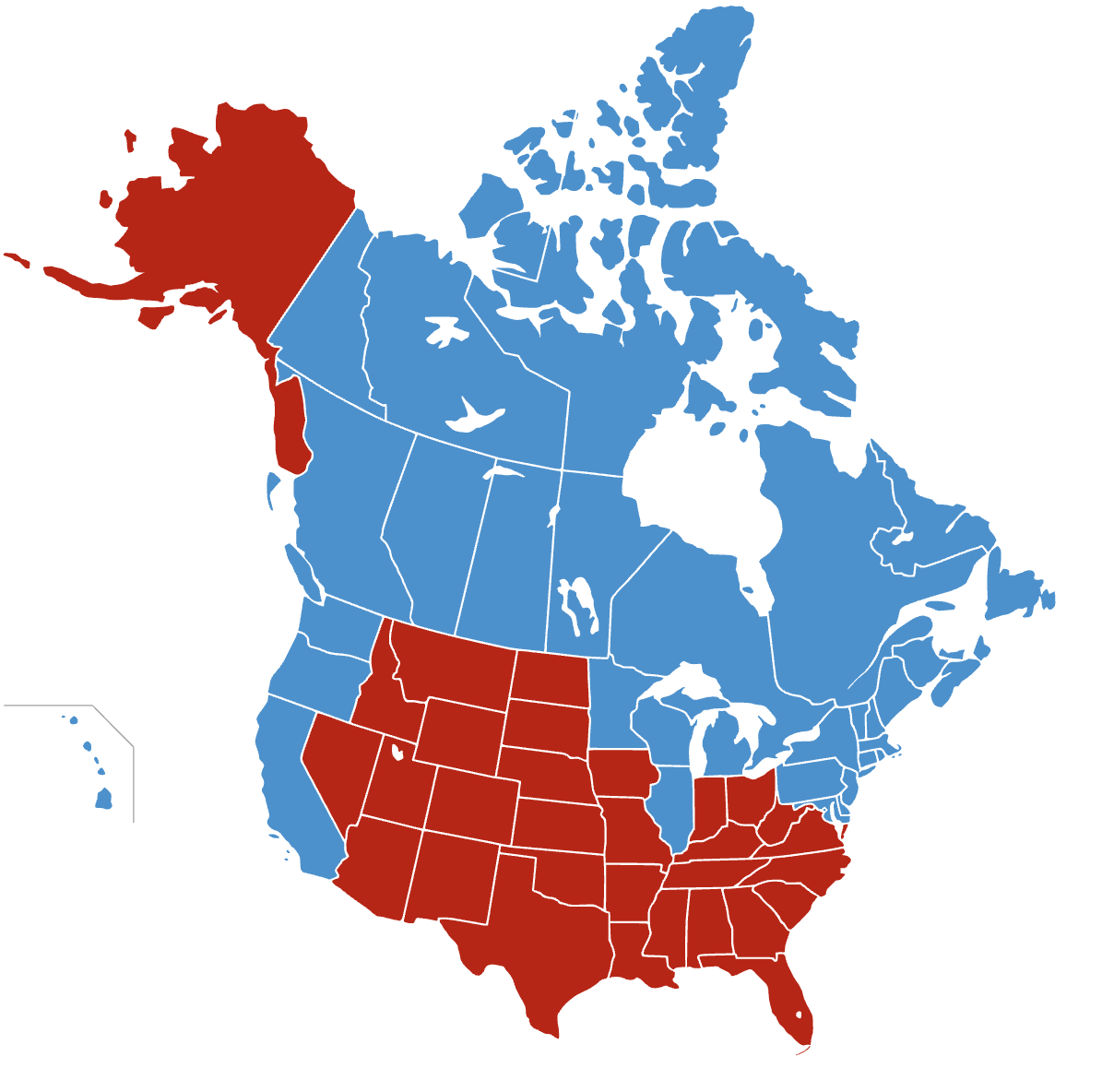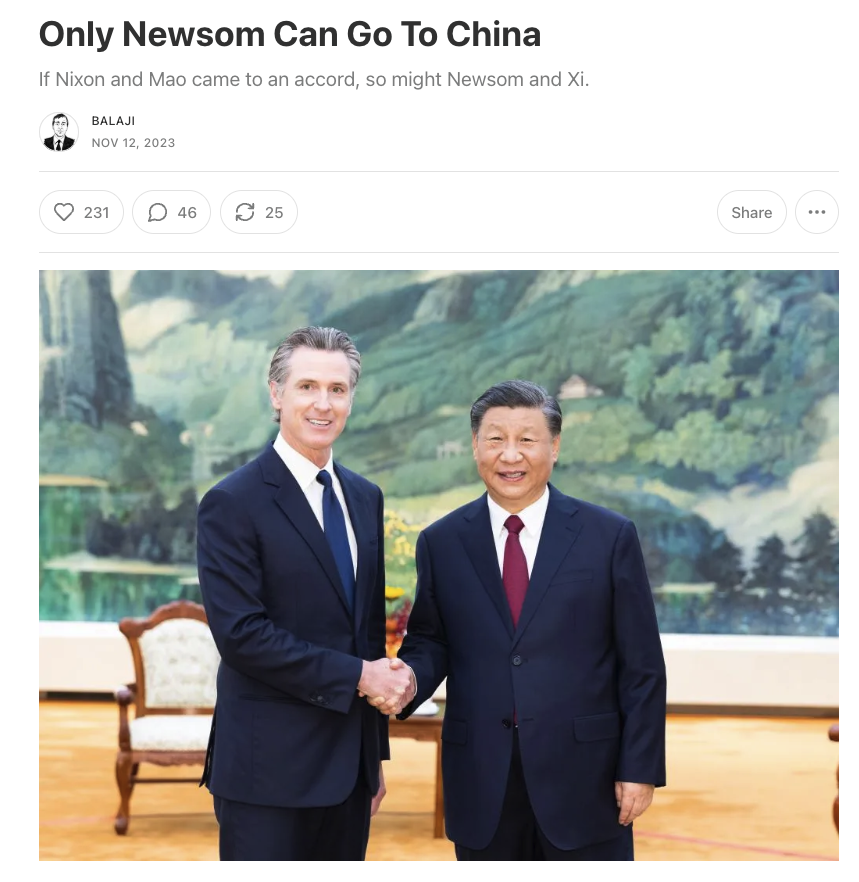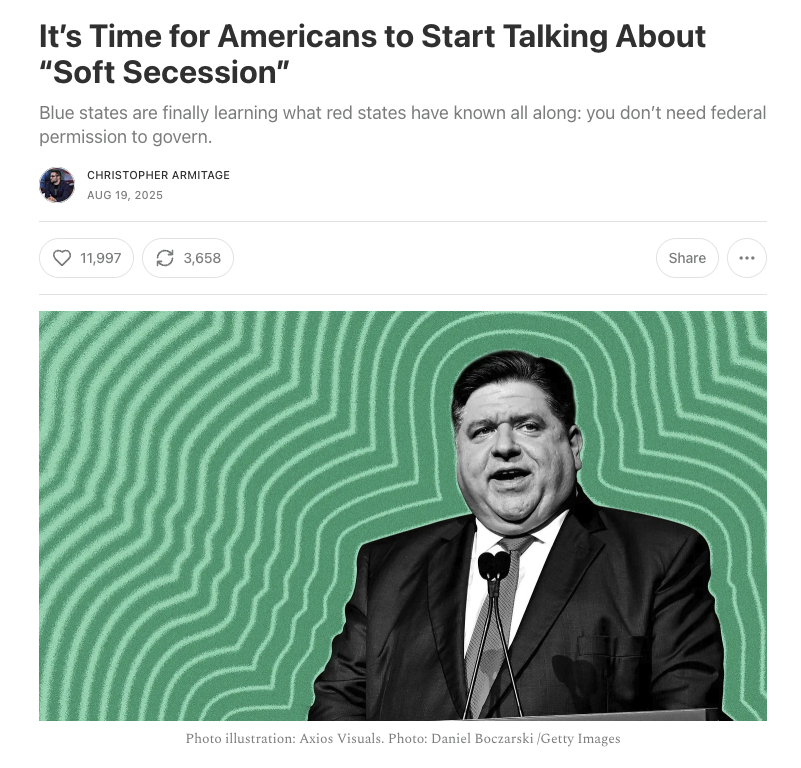Start with four camps.
1) The US is not in decline
2) The US is in decline, but it can be reversed
3) The US is in decline, and it can’t be reversed
4) The US is in decline, and it can’t be reversed, but we can blunt the impact and build a new liberal order on the other side
1) The US is not in decline
2) The US is in decline, but it can be reversed
3) The US is in decline, and it can’t be reversed
4) The US is in decline, and it can’t be reversed, but we can blunt the impact and build a new liberal order on the other side
https://twitter.com/Carnage4Life/status/1497546119299092484
Camp 1 are those who dispute the US is in decline.
Many people are in denial. Some get mad if you point at qualitative and quantitative evidence.
But only the paranoid survive. Denial of decline means you cannot even diagnose the cause, let alone take measures to reverse it.
Many people are in denial. Some get mad if you point at qualitative and quantitative evidence.
But only the paranoid survive. Denial of decline means you cannot even diagnose the cause, let alone take measures to reverse it.

Camp 2 believes the US has declined, but it can be reversed.
While they have *very* different visions of what that reversal means, both centrist liberals like my friend @Noahpinion and MAGA types want to see America “awake from its slumber” and start kicking butt again.
While they have *very* different visions of what that reversal means, both centrist liberals like my friend @Noahpinion and MAGA types want to see America “awake from its slumber” and start kicking butt again.
https://twitter.com/Noahpinion/status/1497061656769163266

Camp 3 are those who believe the US is in decline, it can’t be reversed, and that this is actually good.
This includes people on the anti-imperialist left, on the paleocon right, and many foreign powers — not just traditional rivals, but others that don’t like US intervention.
This includes people on the anti-imperialist left, on the paleocon right, and many foreign powers — not just traditional rivals, but others that don’t like US intervention.
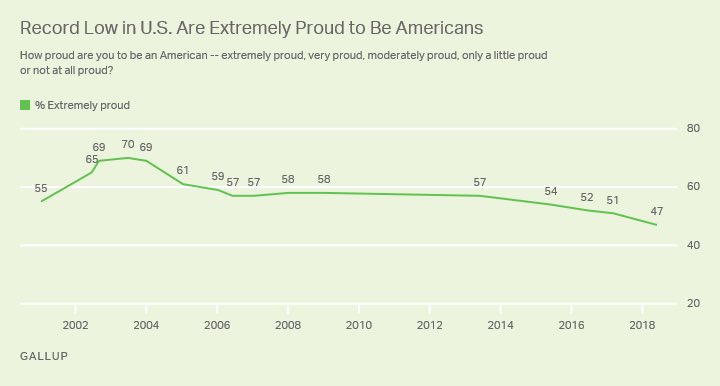
Camp 4 is where I am. I think the US was on balance a force for good till recently. I don’t think decline is reversible — it’s barely acknowledged. But I also think we’ll miss it when it’s gone.
So: how to defend liberal values when the US isn’t globocop?
foreignpolicy.com/2021/12/11/bit…
So: how to defend liberal values when the US isn’t globocop?
foreignpolicy.com/2021/12/11/bit…
The US has now played the role of global policeman for decades. It’s had a mixed record. And the American public has grown justifiably tired of the expense in blood and treasure. 

Perhaps sensing this, just months after the Afghanistan defeat, Russia invaded Ukraine.
Leading to many cynical memes from Ukrainians like one below. Of course, we must avoid direct US/RU conflict as it could lead to nuclear escalation.
But decline meant deterrence failed.
Leading to many cynical memes from Ukrainians like one below. Of course, we must avoid direct US/RU conflict as it could lead to nuclear escalation.
But decline meant deterrence failed.

Mearsheimer correctly predicted this years ago.
The US encouraged Ukraine to take a more aggressive stance than it would have otherwise. But the commitment was insufficient to deter.
In part because decline has meant decline in foreign policy realism.
The US encouraged Ukraine to take a more aggressive stance than it would have otherwise. But the commitment was insufficient to deter.
In part because decline has meant decline in foreign policy realism.
If we are realists, we see that in Hong Kong, Afghanistan, and now Ukraine the US — understandably — is no longer ready to pay any price, bear any burden.
There are limits. You can’t rely on them for deterrence. Other countries are realizing this, and arming up accordingly.
There are limits. You can’t rely on them for deterrence. Other countries are realizing this, and arming up accordingly.
https://twitter.com/SolankiMoksh/status/1497421818613104646
Separately but relatedly there is the question of what kind of order the US can even deliver.
The US way of life was once the best. But globalization closed the gap. Others rose. And after years of political chaos, US soft power eroded. Others now think they have a better model.
The US way of life was once the best. But globalization closed the gap. Others rose. And after years of political chaos, US soft power eroded. Others now think they have a better model.
https://twitter.com/balajis/status/1452880158390579207
Putting it together, the US is in decline. It lacks the will — and manufacturing base — to be the “arsenal of democracy”.
As it withdraws from physical intervention, some countries may grow aggressive. Others may arm up in response. Won’t be fun! But there is a *little* hope…
As it withdraws from physical intervention, some countries may grow aggressive. Others may arm up in response. Won’t be fun! But there is a *little* hope…
Many of the ideals the US once imperfectly defended with munitions — free speech, free trade, rule-of-law — we can now imperfectly defend with encryption.
It isn’t everything. And much depends on whether a free internet exists. But it’s a life raft.
bariweiss.substack.com/p/is-bitcoin-a…
It isn’t everything. And much depends on whether a free internet exists. But it’s a life raft.
bariweiss.substack.com/p/is-bitcoin-a…

The four camps are denial, reversal, acceleration and crypto-civilization.
https://twitter.com/balajis/status/1497551174450311172
Btw, for the sake of completeness there is a fifth possibility: the US has already transformed into a digital power that is now financially nuking Russia.
The physical in this view is actually just downstream, and we have been weighting it too heavily. We’ll see if this works.
The physical in this view is actually just downstream, and we have been weighting it too heavily. We’ll see if this works.
https://twitter.com/MazMHussain/status/1497583564640202752
• • •
Missing some Tweet in this thread? You can try to
force a refresh


